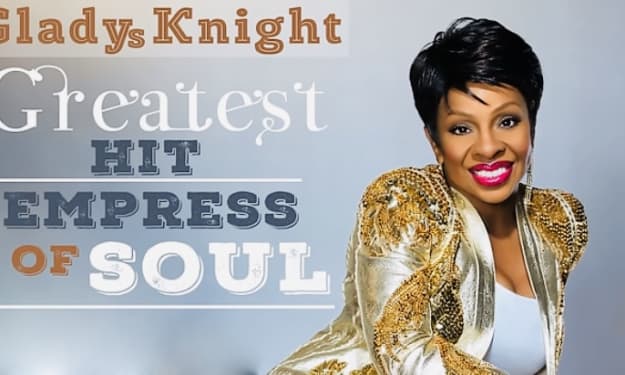GLOBAL MUSIC DIVERSITY
healing power of music
Music is a universal language that transcends borders, cultures, and generations. It has the power to evoke emotions, unite people, and express the depths of the human experience. From the beating of a drum to the strumming of a guitar, music has played a central role in human civilization for thousands of years. Today, in a world more interconnected than ever before, music continues to thrive and evolve, enriching the lives of people from all corners of the globe.
One of the most remarkable aspects of music is its incredible diversity. Every culture has its own unique musical traditions, instruments, and styles. From the complex rhythms of African drumming to the intricate melodies of Indian classical music, the world is a tapestry of sonic expressions. Traditional folk songs, passed down through generations, preserve the history and values of a community, while contemporary genres like pop, rock, hip-hop, and electronic music reflect the pulse of modern society. This incredible variety ensures that there is a musical genre or style for every taste and mood.
In addition to its cultural significance, music also has a profound impact on individuals. It has the ability to uplift spirits, soothe troubled minds, and bring joy to the soul. Scientific research has shown that music has therapeutic benefits, reducing stress, improving mood, and even enhancing cognitive function. Music can transport us to another time and place, triggering memories and emotions that might otherwise remain dormant. Whether through the lively beats of a dance floor or the gentle melodies of a lullaby, music has the power to create shared experiences and forge connections between people.
Thanks to technological advancements and the advent of the internet, music now reaches every corner of the world. Digital platforms, streaming services, and social media have revolutionized the way music is created, distributed, and consumed. Artists can connect directly with their fans, and listeners have access to an unprecedented amount of music from all over the globe. This interconnectedness has given rise to exciting collaborations, fusion genres, and the exploration of new musical frontiers. Boundaries are being pushed, and traditional genres are being reimagined, leading to a constant evolution of musical expression.
However, the globalization of music also poses challenges. As popular styles dominate the global music market, there is a risk of homogenization, where unique regional sounds are overshadowed or lost. Cultural appropriation and the commodification of music can dilute its authenticity and significance. It is crucial to celebrate and preserve the diverse musical heritage of different communities while fostering a spirit of cross-cultural exchange and appreciation.
Music has the power to transcend language barriers, making it a powerful tool for promoting understanding and peace. Musicians from conflicting cultures can come together on a stage and create harmony, showcasing the potential for unity amidst diversity. In recent years, numerous international music festivals and events have emerged, bringing together artists and audiences from around the world. These gatherings serve as platforms for cultural exchange and dialogue, reminding us of the universality of music and its capacity to bridge divides.
In conclusion, music in the world is a vibrant and multifaceted tapestry that weaves together cultures, emotions, and experiences. It is a testament to the richness of human creativity and the power of art to transcend boundaries. From ancient traditions to modern innovations, music continues to captivate and inspire people across the globe. As we embrace this musical mosaic, let us strive to preserve its diversity, foster cross-cultural understanding, and appreciate the unique contributions of every culture.
Music has the ability to touch our hearts and souls, providing solace, comfort, and a sense of healing during difficult times. Whether it's a heartbreaking ballad that allows us to grieve and find catharsis or an uplifting anthem that instills hope and resilience, music has the power to evoke deep emotions and serve as a form of therapy.
Throughout history, music has been used as a means of healing and transformation. In ancient civilizations, healers and shamans would incorporate music into their rituals to restore harmony and balance to individuals and communities. Today, music therapy is recognized as a legitimate form of therapy in which trained professionals use music to address physical, emotional, cognitive, and social needs of individuals. It has been found to be particularly effective in treating conditions such as depression, anxiety, and post-traumatic stress disorder.
The emotional impact of music can be seen in the way it resonates with our personal experiences. We often associate certain songs or pieces of music with significant moments in our lives, whether they are joyous or sorrowful. These musical connections can transport us back in time, evoking vivid memories and stirring up a wide range of emotions. For example, hearing a song that was played at a loved one's funeral can bring about a sense of grief, but it can also provide comfort and a sense of connection to the person we have lost.
Music also has the power to unite people and create a sense of shared emotions. In times of collective grief or turmoil, music can serve as a source of solace and solidarity. It has the ability to bring people together, creating a sense of community and empathy. In moments of tragedy or disaster, benefit concerts and charity singles often emerge, providing both financial support and emotional healing to those affected.
Furthermore, music has the capacity to inspire and uplift us during challenging times. It can provide motivation and strength when we feel discouraged or overwhelmed. From powerful anthems that encourage social change to personal ballads that remind us of our inner resilience, music has the ability to ignite hope and empower us to overcome adversity.
The emotional depth of music is undeniable. It has the power to stir our souls, evoke memories, and heal our wounds. Whether we are seeking solace, joy, or inspiration, music has the ability to touch us in profound ways. Its universal language allows it to transcend cultural, linguistic, and societal barriers, making it a potent force for emotional connection and understanding. In a world often marked by division and strife, music has the potential to unite us, heal us, and remind us of our shared humanity.
About the Creator
solomon Christian
A first class graduate of mathemathics at the University of Technology lautech.







Comments (3)
good music heals
Impressive analysis.
Music has definitely taken a different shape in the world that one needs to be careful